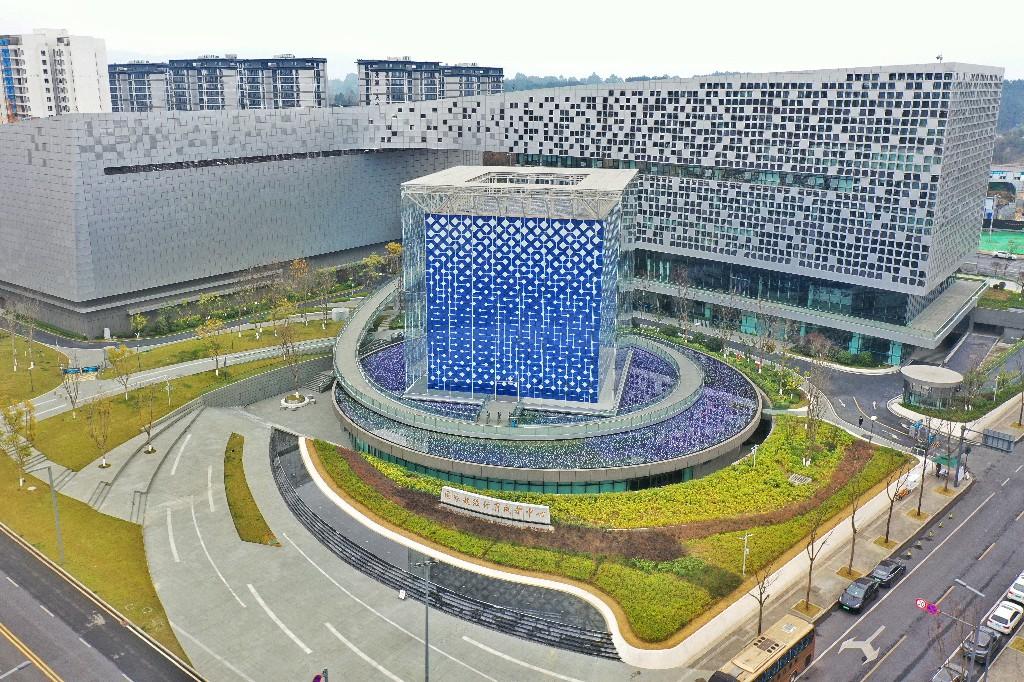Chengdu: An AI Hub

As a key component of new-quality productive forces, AI continues to help build a series of future scenarios for an ever changing China. This is particularly true in the southwestern city of Chengdu.
In early November, Chengdu unveiled its first batch of 36 AI targeted projects, covering a variety of sectors impacting people's daily lives. This strategic initiative is designed to provide robust support for the city's transition towards a smarter, more technologically advanced environment. With the deepening integration of AI, Chengdu is poised to emerge as a major center for the AI industry, both nationally and internationally.
The path to AI+
Chengdu's journey towards an AI-driven future began well before recent developments. In 2020, the city launched an ambitious action plan aimed at training, rather than just introducing, 10,000 AI experts and developing over 50 innovative AI applications. The goal was to make Chengdu an AI leader in China.
A year later, Chengdu was designated as the first national AI innovation application pilot zone in western China. By 2023, the AI and robotics industry in Chengdu had grown to a scale of 78 billion RMB, representing a compound annual growth rate of over 40 percent in the past three years. In 2024, the industry is projected to exceed 100 billion RMB.
Chengdu's AI development is characterized not only by quantitative growth but also by significant advancements in technology. In June, China's first vision-based diffusion architecture task generation model for humanoid robots, known as R-DDPRM, was introduced in Chengdu.
Chengdu has also actively engaged both domestic and international tech leaders to establish AI operations within the city. Notably, the local government has cooperated with China's multinational tech giant Tencent, focusing on building AI education system and hosting AI (game) competitions, attracting people with trendy cultural products.
Foreign tech giants have also been invited to contribute to the city's AI ecosystem. For instance, Siemens established a Smart Manufacturing and Innovation Center in Chengdu, marking the company's first digital factory outside Germany.
Chengdu's advantages
Chengdu's strength in AI lies in its comprehensive development.
As one of the eight regions in the country authorized to build large and super-large data centers, the city hosts two national-level platforms: the National Supercomputing Center and the Chengdu Intelligent Computing Center.
The city also boasts several relatively complete ecosystems of autonomous controllable computing power, and leads the nation in the development of industry-specific large models and public data openness and operation.
Chengdu's specific actions for the AI future contains four parts:
First, centered around the construction of the national AI innovation pilot zone, distinctive scenario projects have been developed. To date, over 150 projects have been implemented, covering technology breakthroughs, application demonstrations, AI social experiments, and etc.
Second, advancement of the construction of innovation platforms by establishing 37 national and provincial AI innovation platforms, 28 of which are listed as key innovation platforms in Sichuan province's AI sector.
Third, development of a system to nurture AI tech enterprises. Currently, there are 634 high-tech AI enterprises, making up two-third of the city's total AI enterprises.
Fourth, focusing on key core technology R&D, particularly in areas such as computer vision and data analysis. Chengdu has organized and implemented 372 key R&D projects, with a cumulative funding support of 237 million RMB.
This effort has resulted in the creation of smart chips and other 200 more innovative products.Going forward, Ding Xiaobin, director of the Chengdu Municipal Science and Technology Bureau, said the city government will continue to focus on AI innovation platform construction, core technology R&D, support for the development of vertical large models, and the cultivation of enterprise innovation subjects.
"We will comprehensively advance sci-tech innovation in the field of AI and continuously promote the industrial upgrading through 'AI+',"Ding said.







